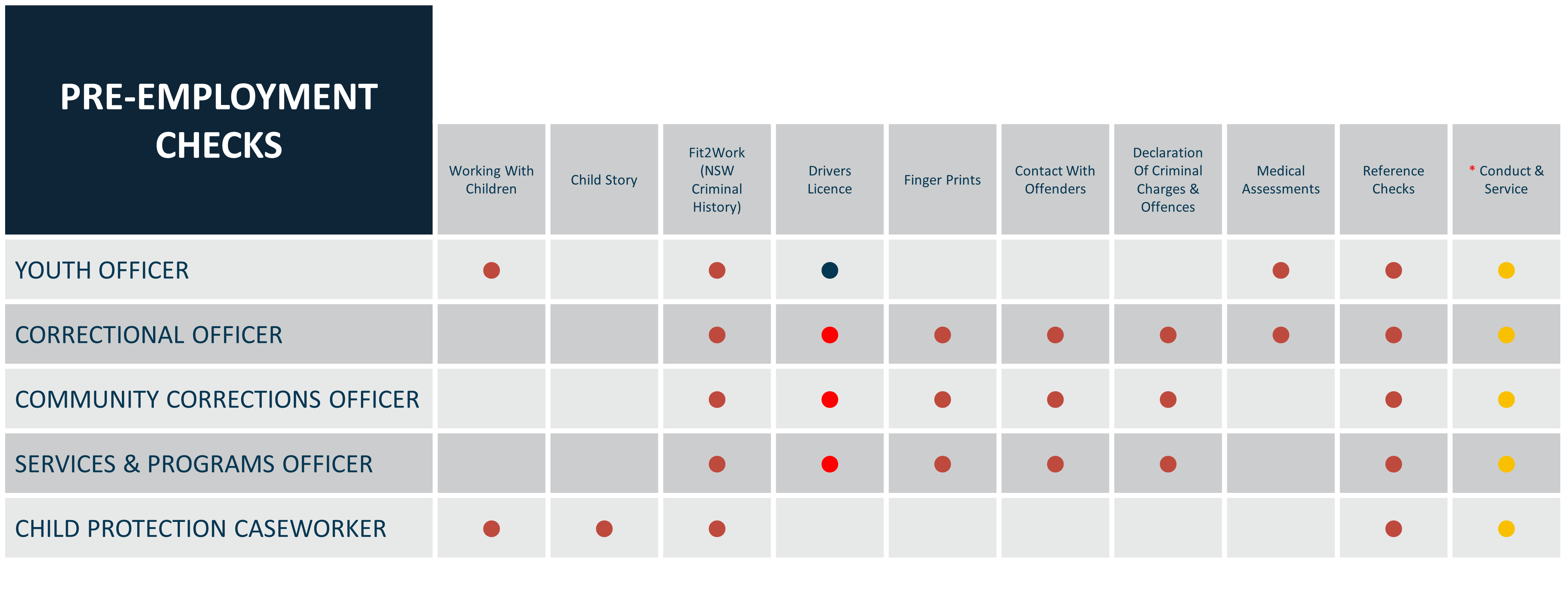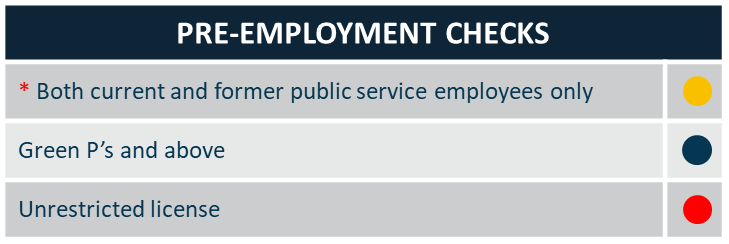Automatic language translation
Our website uses an automatic service to translate our content into different languages. These translations should be used as a guide only. See our Accessibility page for further information.
Pre-employment checks are an important part of our recruitment process and can include reference checks, working with children checks, criminal history checks, medical assessments, and various other checks to ensure your suitability for various roles.
As the Yuranha program is a pathway to employment, the same checks are necessary for the course you would need in order to become an employee. The checks need to be completed before you can start your course, but they don’t have to be repeated if you decide to transition to a role at the end of the course.
Make sure you leave yourself plenty of time to gather your paperwork and wait for various organisations to get back to you.
We understand that these checks might put you off and that you might have a few worries or questions. Please know that you can have a yarn with Aboriginal staff in the Aboriginal Employment Strategy Team. We are here to give you the right information so please get in touch with us here at AES@justice.nsw.gov.au
We know this part of the process can be a big challenge for our community – don’t let that stop you from reaching out.
Video transcript: What are pre-employment checks?
See below for the checks you will need to complete for the Yuranha pre-employment program.


The Yuranha program is for Aboriginal people. We are committed to inclusion over exclusion. But most importantly, we believe in the principle of self-determination and that Aboriginal people are the ones best placed to make decisions about their families and communities.
That’s why we ask you to provide proof or confirmation of Aboriginal heritage for this program and may need to discuss your cultural connection with you It’s for you.
Please note: DCJ cannot comment on, prove or provide confirmation of anyone’s Aboriginal heritage. Your Aboriginal heritage is something that is personal to you.
Seeking confirmation of Aboriginality applies to the Yuranha program so we can confirm that all candidates identify as an Aboriginal and/or Torres Strait Islander and are known and accepted as such to their community in which they live and work. Government agencies and community organisations usually accept three 'working criteria' as confirmation of Aboriginality.
These are:
All of these things must apply to be part of these pre-employment programs.
There are two options available:
If this could be complex for you, don’t be put off; just get in touch with us at AES@justice.nsw.gov.au and we can talk you through any questions you might have.
We use the standard 100-point check for the purposes of obtaining an identification record for applicants.
You must establish your identity by providing documents certified as true copies that add up to a minimum of 100 points. Originals may also be sighted by the Corrective Services NSW recruitment staff.
If none of your proof of identity documents shows your current address, you must produce one of the following documents showing your current address: a current Transport for NSW issued certificate of registration, a contract of sale, lease agreement or rental document up to two years old.
Please note that at DCJ we commonly use the word "Aboriginal", recognising that Aboriginal people are the original inhabitants of NSW, the part of Australia we are responsible for. We acknowledge and respect that Torres Strait Islander people are among the First Nations of Australia and that both Aboriginal and Torres Strait Islander people are an important part of our staff and the communities we work with.
27 Jul 2023